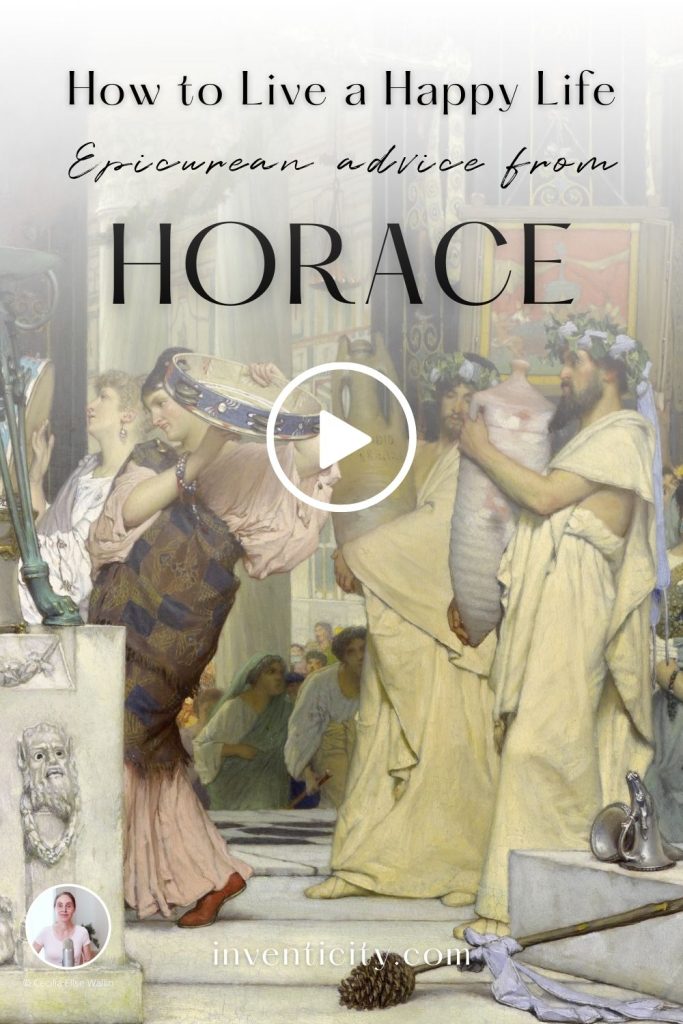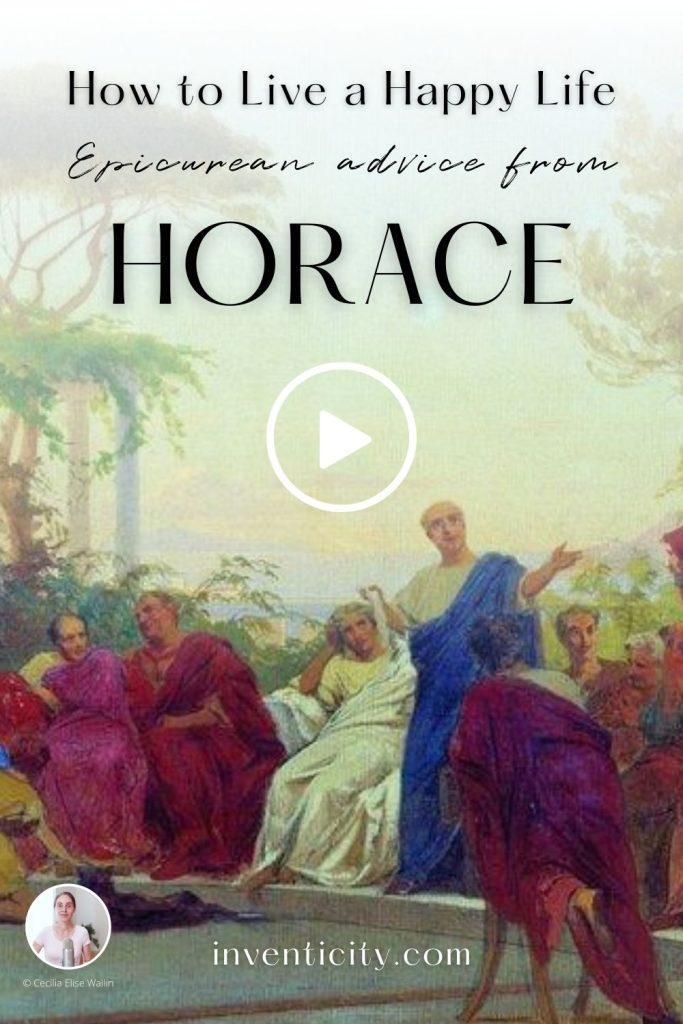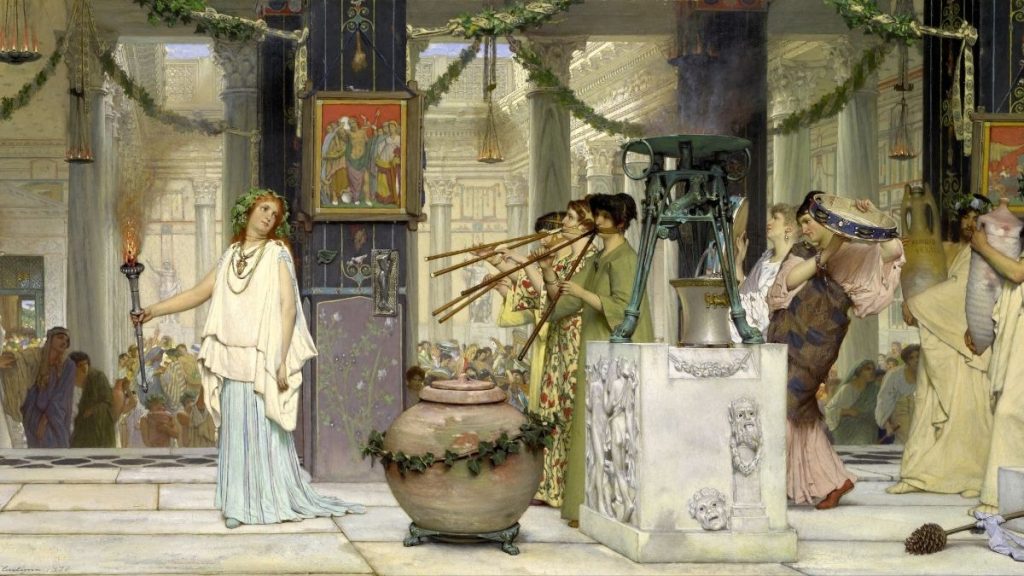How to Live a Happy Life | Epicurean advice from Horace
Horace (The Roman poet Quintus Horatius Flaccus, 65 – 8 BC) became one of the most prominent writers in the golden age of literature in ancient Rome. Through his friendship with Caesar Augustus’ advisor Maecenas, Horace became one of the poets who were rewarded for praising the new emperor.
But at the same time, as a writer and poet, Horace managed to maintain a liberating insightful independence and truthfulness, which still today places him among history’s greatest poets. Through (or perhaps thanks to) a kind of internal exile, Horace remained an independent thinker and a uniquely innovative poet.
Horace’s Childhood
Horace was born in 65 BC in the countryside close to the city of Venusia (in present-day southern Italy). Horace never mentioned his mother in his texts – she might have died when he was a small child.
Horace’s father had been captured by the Romans as a young man and forced to work as a slave, but after he had been released he acquired a farm and became so successful in business that he could give his son Horace a costly education.
Horace’s father moved with his son to Rome, where Horace received a first-class education. Horace studied philosophy and literature.
Horace’s Dramatic Years in Macedonia
After his studies in Rome, Horace traveled to Athens, together with Cicero’s son and other friends, to deepen his studies in philosophy and other subjects.
The political fights were dramatic at this time, and in Athens Horace became involved in the great political events. After Brutus had assassinated Julius Caesar (15 March 44 BC) Brutus traveled from Rome to Athens in order to gather supporters for the preservation of the republic among the Roman students in Athens.
Brutus attended academic lectures to recruit young students. In this way, Horace was recruited to fight in the republican army.
Horace was sent with the army to the wilderness of what was then northern Macedonia. In the year 42 BC Octavian’s (future Caesar Augustus) army defeated the republican army in the battle of Philippi. Horace, then 23 years old, fled the front and lived for months as a vagabond in the countryside of what was then northern Macedonia.
Breathtakingly Beautiful Poems
Many of the poems Horace wrote later in his life contain memories of his experiences from these years in northern Macedonia. For example, I believe that Horace’s ode 3.25 contains impressions and moods from Horace’s experiences from this time in the wildernesses of northern Macedonia:
“Oh Bacchus, where are
you leading me, overflowing
with your power?
Which forests, which valleys am I
pushed into, with strange courage?
What caves will listen
when I try Caesar’s majesty
amid the stars to set?
I want to tell about incredible, awesome,
things which no one has mentioned before.
As a young woman, walking in the night,
stops in the mountain snow and astonished
looks at Hebrus’ waters, and Rhodope,
the wilderness
– so strange seem to me
the waters of the rivers,
the solitary forest … ”
(Translated into English by Cecilia Elise Wallin)
Ode 3.25 (which among other things elaborates on how our language limits our experience) is interesting in many ways. Mainly for its lyrical qualities. But also because it paints a picture of how Horace complied with the expectations of Caesar Augustus and his propaganda minister Maecenas.
As a young man, Horace fought for the preservation of the republic, against Ocatvian’s (future Emperor Augustus) army, but in Horace’s later poems he pays tribute to the emperor, as we clearly can see in ode 3.25: “/…/ when I try Caesar’s majesty amid the stars to set /…/”.
Horace’s Intellectual Independence
Maybe the pressure to write propaganda paradoxically raised the literary quality of Horace’s poems. It is not uncommon that literary masterpieces are created in dictatorships, under great intellectual pressure. Especially among poets, Horace has been tremendously appreciated over the centuries. He is often seen as a “poet of the poets”.
One of Horace’s most famous texts is Ars Poetica (Art of Poetry), a long hexameter work in which Horace gives advice to poets and playwrights.
Horace’s poems often have a transformative philosophical and poetic depth, far from and in contrast to political obsequiousness and propaganda.
Epicureanism in Horace’s Poems
Many of Horace’s poems emphasize an epicurean approach to life (after the Greek philosopher Epicurus), a philosophical orientation that Horace had studied. Epicurus emphasized the importance of peace of mind, of taking advantage of life in the here and now – and the value of living a quiet and simple life. Epicurus emphasized the importance of enjoying what we experience through our senses. A similar outlook on life is beautifully explored in many of Horace’s poems.
© Cecilia Elise Wallin


